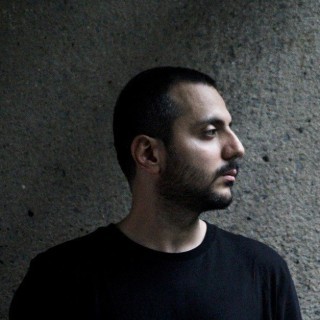
01.01.1833
113
Poetry
Tekst piosenki
The Great World
'Fare thee well, and if for ever,
Still for ever fare thee well.'—Byron
I
In the Lyceum's noiseless shade
As in a garden when I grew,
I Apuleius gladly read
But would not look at Cicero.
'Twas then in valleys lone, remote,
In spring-time, heard the cygnet's note
By waters shining tranquilly,
That first the Muse appeared to me.
Into the study of the boy
There came a sudden flash of light,
The Muse revealed her first delight,
Sang childhood's pastimes and its joy,
Glory with which our history teems
And the heart's agitated dreams.
II
And the world met her smilingly,
A first success light pinions gave,
The old Derjavine noticed me,
And blest me, sinking to the grave.(78)
Then my companions young with pleasure
In the unfettered hours of leisure
Her utterances ever heard,
And by a partial temper stirred
And boiling o'er with friendly heat,
They first of all my brow did wreathe
And an encouragement did breathe
That my coy Muse might sing more sweet.
O triumphs of my guileless days,
How sweet a dream your memories raise!
[Note 78: This touching scene produced a lasting impression on Pushkin's mind. It took place at a public examination at the Lyceum, on which occasion the boy poet produced a poem. The incident recalls the "Mon cher Tibulle" of Voltaire and the youthful Parny (see Note 42). Derjavine flourished during the reigns of Catherine the Second and Alexander the First. His poems are stiff and formal in style and are not much thought of by contemporary Russians. But a century back a very infinitesimal endowment of literary ability was sufficient to secure imperial reward and protection, owing to the backward state of the empire. Stanza II properly concludes with this line, the remainder having been expunged either by the author himself or the censors. I have filled up the void with lines from a fragment left by the author having reference to this canto.]
III
Passion's wild sway I then allowed,
Her promptings unto law did make,
Pursuits I followed of the crowd,
My sportive Muse I used to take
To many a noisy feast and fight,
Terror of guardians of the night;
And wild festivities among
She brought with her the gift of song.
Like a Bacchante in her sport
Beside the cup she sang her rhymes
And the young revellers of past times
Vociferously paid her court,
And I, amid the friendly crowd,
Of my light paramour was proud.
IV
But I abandoned their array,
And fled afar—she followed me.
How oft the kindly Muse away
Hath whiled the road's monotony,
Entranced me by some mystic tale.
How oft beneath the moonbeams pale
Like Leonora did she ride(79)
With me Caucasian rocks beside!
How oft to the Crimean shore
She led me through nocturnal mist
Unto the sounding sea to list,
Where Nereids murmur evermore,
And where the billows hoarsely raise
To God eternal hymns of praise.
[Note 79: See Note 30, "Leonora," a poem by Gottfried Augustus
Burger, b. 1748, d. 1794.]
V
Then, the far capital forgot,
Its splendour and its blandishments,
In poor Moldavia cast her lot,
She visited the humble tents
Of migratory gipsy hordes—
And wild among them grew her words—
Our godlike tongue she could exchange
For savage speech, uncouth and strange,
And ditties of the steppe she loved.
But suddenly all changed around!
Lo! in my garden was she found
And as a country damsel roved,
A pensive sorrow in her glance
And in her hand a French romance.
VI
Now for the first time I my Muse
Lead into good society,
Her steppe-like beauties I peruse
With jealous fear, anxiety.
Through dense aristocratic rows
Of diplomats and warlike beaux
And supercilious dames she glides,
Sits down and gazes on all sides—
Amazed at the confusing crowd,
Variety of speech and vests,
Deliberate approach of guests
Who to the youthful hostess bowed,
And the dark fringe of men, like frames
Enclosing pictures of fair dames.
VII
Assemblies oligarchical
Please her by their decorum fixed,
The rigour of cold pride and all
Titles and ages intermixed.
But who in that choice company
With clouded brow stands silently?
Unknown to all he doth appear,
A vision desolate and drear
Doth seem to him the festal scene.
Doth his brow wretchedness declare
Or suffering pride? Why is he there?
Who may he be? Is it Eugene?
Pray is it he? It is the same.
"And is it long since back he came?
VIII
"Is he the same or grown more wise?
Still doth the misanthrope appear?
He has returned, say in what guise?
What is his latest character?
What doth he act? Is it Melmoth,(80)
Philanthropist or patriot,
Childe Harold, quaker, devotee,
Or other mask donned playfully?
Or a good fellow for the nonce,
Like you and me and all the rest?—
But this is my advice, 'twere best
Not to behave as he did once—
Society he duped enow."
"Is he known to you?"—"Yes and No."
[Note 80: A romance by Maturin.]
IX
Wherefore regarding him express
Perverse, unfavourable views?
Is it that human restlessness
For ever carps, condemns, pursues?
Is it that ardent souls of flame
By recklessness amuse or shame
Selfish nonentities around?
That mind which yearns for space is bound?
And that too often we receive
Professions eagerly for deeds,
That crass stupidity misleads,
That we by cant ourselves deceive,
That mediocrity alone
Without disgust we look upon?
X
Happy he who in youth was young,
Happy who timely grew mature,
He who life's frosts which early wrung
Hath gradually learnt to endure;
By visions who was ne'er deranged
Nor from the mob polite estranged,
At twenty who was prig or swell,
At thirty who was married well,
At fifty who relief obtained
From public and from private ties,
Who glory, wealth and dignities
Hath tranquilly in turn attained,
And unto whom we all allude
As to a worthy man and good!
XI
But sad is the reflection made,
In vain was youth by us received,
That we her constantly betrayed
And she at last hath us deceived;
That our desires which noblest seemed,
The purest of the dreams we dreamed,
Have one by one all withered grown
Like rotten leaves by Autumn strown—
'Tis fearful to anticipate
Nought but of dinners a long row,
To look on life as on a show,
Eternally to imitate
The seemly crowd, partaking nought
Its passions and its modes of thought.
XII
The butt of scandal having been,
'Tis dreadful—ye agree, I hope—
To pass with reasonable men
For a fictitious misanthrope,
A visionary mortified,
Or monster of Satanic pride,
Or e'en the "Demon" of my strain.(81)
Oneguine—take him up again—
In duel having killed his friend
And reached, with nought his mind to engage,
The twenty-sixth year of his age,
Wearied of leisure in the end,
Without profession, business, wife,
He knew not how to spend his life.
[Note 81: The "Demon," a short poem by Pushkin which at its first appearance created some excitement in Russian society. A more appropriate, or at any rate explanatory title, would have been the Tempter. It is descriptive of the first manifestation of doubt and cynicism in his youthful mind, allegorically as the visits of a "demon." Russian society was moved to embody this imaginary demon in the person of a certain friend of Pushkin's. This must not be confounded with Lermontoff's poem bearing the same title upon which Rubinstein's new opera, "Il Demonio," is founded.]
XIII
Him a disquietude did seize,
A wish from place to place to roam,
A very troublesome disease,
In some a willing martyrdom.
Abandoned he his country seat,
Of woods and fields the calm retreat,
Where every day before his eyes
A blood-bespattered shade would rise,
And aimless journeys did commence—
But still remembrance to him clings,
His travels like all other things
Inspired but weariness intense;
Returning, from his ship amid
A ball he fell as Tchatzki did.(82)
[Note 82: Tchatzki, one of the principal characters in Griboyedoff's celebrated comedy "Woe from Wit" (Gore ot Ouma).]
XIV
Behold, the crowd begins to stir,
A whisper runs along the hall,
A lady draws the hostess near,
Behind her a grave general.
Her manners were deliberate,
Reserved, but not inanimate,
Her eyes no saucy glance address,
There was no angling for success.
Her features no grimaces bleared;
Of affectation innocent,
Calm and without embarrassment,
A faithful model she appeared
Of "comme il faut." Shishkoff, forgive!
I can't translate the adjective.(83)
[Note 83: Shishkoff was a member of the literary school which cultivated the vernacular as opposed to the Arzamass or Gallic school, to which the poet himself and his uncle Vassili Pushkin belonged. He was admiral, author, and minister of education.]
XV
Ladies in crowds around her close,
Her with a smile old women greet,
The men salute with lower bows
And watch her eye's full glance to meet.
Maidens before her meekly move
Along the hall, and high above
The crowd doth head and shoulders rise
The general who accompanies.
None could her beautiful declare,
Yet viewing her from head to foot,
None could a trace of that impute,
Which in the elevated sphere
Of London life is "vulgar" called
And ruthless fashion hath blackballed.
XVI
I like this word exceedingly
Although it will not bear translation,
With us 'tis quite a novelty
Not high in general estimation;
'Twould serve ye in an epigram—
But turn we once more to our dame.
Enchanting, but unwittingly,
At table she was sitting by
The brilliant Nina Voronskoi,
The Neva's Cleopatra, and
None the conviction could withstand
That Nina's marble symmetry,
Though dazzling its effulgence white,
Could not eclipse her neighbour's light.
XVII
"And is it," meditates Eugene.
"And is it she? It must be—no—
How! from the waste of steppes unseen,"—
And the eternal lorgnette through
Frequent and rapid doth his glance
Seek the forgotten countenance
Familiar to him long ago.
"Inform me, prince, pray dost thou know
The lady in the crimson cap
Who with the Spanish envoy speaks?"—
The prince's eye Oneguine seeks:
"Ah! long the world hath missed thy shape!
But stop! I will present thee, if
You choose."—"But who is she?"—"My wife."
XVIII
"So thou art wed! I did not know.
Long ago?"—"'Tis the second year."
"To—?"—"Larina."—"Tattiana?"—"So.
And dost thou know her?"—"We live near."
"Then come with me." The prince proceeds,
His wife approaches, with him leads
His relative and friend as well.
The lady's glance upon him fell—
And though her soul might be confused,
And vehemently though amazed
She on the apparition gazed,
No signs of trouble her accused,
A mien unaltered she preserved,
Her bow was easy, unreserved.
XIX
Ah no! no faintness her attacked
Nor sudden turned she red or white,
Her brow she did not e'en contract
Nor yet her lip compressed did bite.
Though he surveyed her at his ease,
Not the least trace Oneguine sees
Of the Tattiana of times fled.
He conversation would have led—
But could not. Then she questioned him:—
"Had he been long here, and where from?
Straight from their province had he come?"—
Cast upwards then her eyeballs dim
Unto her husband, went away—
Transfixed Oneguine mine doth stay.
XX
Is this the same Tattiana, say,
Before whom once in solitude,
In the beginning of this lay,
Deep in the distant province rude,
Impelled by zeal for moral worth,
He salutary rules poured forth?
The maid whose note he still possessed
Wherein the heart its vows expressed,
Where all upon the surface lies,—
That girl—but he must dreaming be—
That girl whom once on a time he
Could in a humble sphere despise,
Can she have been a moment gone
Thus haughty, careless in her tone?
XXI
He quits the fashionable throng
And meditative homeward goes,
Visions, now sad, now grateful, long
Do agitate his late repose.
He wakes—they with a letter come—
The Princess N. will be at home
On such a day. O Heavens, 'tis she!
Oh! I accept. And instantly
He a polite reply doth scrawl.
What hath he dreamed? What hath occurred?
In the recesses what hath stirred
Of a heart cold and cynical?
Vexation? Vanity? or strove
Again the plague of boyhood—love?
XXII
The hours once more Oneguine counts,
Impatient waits the close of day,
But ten strikes and his sledge he mounts
And gallops to her house away.
Trembling he seeks the young princess—
Tattiana finds in loneliness.
Together moments one or two
They sat, but conversation's flow
Deserted Eugene. He, distraught,
Sits by her gloomily, desponds,
Scarce to her questions he responds,
Full of exasperating thought.
He fixedly upon her stares—
She calm and unconcerned appears.
XXIII
The husband comes and interferes
With this unpleasant tete-a-tete,
With Eugene pranks of former years
And jests doth recapitulate.
They talked and laughed. The guests arrived.
The conversation was revived
By the coarse wit of worldly hate;
But round the hostess scintillate
Light sallies without coxcombry,
Awhile sound conversation seems
To banish far unworthy themes
And platitudes and pedantry,
And never was the ear affright
By liberties or loose or light.
XXIV
And yet the city's flower was there,
Noblesse and models of the mode,
Faces which we meet everywhere
And necessary fools allowed.
Behold the dames who once were fine
With roses, caps and looks malign;
Some marriageable maids behold,
Blank, unapproachable and cold.
Lo, the ambassador who speaks
Economy political,
And with gray hair ambrosial
The old man who has had his freaks,
Renowned for his acumen, wit,
But now ridiculous a bit.
XXV
Behold Sabouroff, whom the age
For baseness of the spirit scorns,
Saint Priest, who every album's page
With blunted pencil-point adorns.
Another tribune of the ball
Hung like a print against the wall,
Pink as Palm Sunday cherubim,(84)
Motionless, mute, tight-laced and trim.
The traveller, bird of passage he,
Stiff, overstarched and insolent,
Awakens secret merriment
By his embarrassed dignity—
Mute glances interchanged aside
Meet punishment for him provide.
[Note 84: On Palm Sunday the Russians carry branches, or used to do so. These branches were adorned with little painted pictures of cherubs with the ruddy complexions of tradition. Hence the comparison.]
XXVI
But my Oneguine the whole eve
Within his mind Tattiana bore,
Not the young timid maid, believe,
Enamoured, simple-minded, poor,
But the indifferent princess,
Divinity without access
Of the imperial Neva's shore.
O Men, how very like ye are
To Eve the universal mother,
Possession hath no power to please,
The serpent to unlawful trees
Aye bids ye in some way or other—
Unless forbidden fruit we eat,
Our paradise is no more sweet.
XXVII
Ah! how Tattiana was transformed,
How thoroughly her part she took!
How soon to habits she conformed
Which crushing dignity must brook!
Who would the maiden innocent
In the unmoved, magnificent
Autocrat of the drawing-room seek?
And he had made her heart beat quick!
'Twas he whom, amid nightly shades,
Whilst Morpheus his approach delays,
She mourned and to the moon would raise
The languid eye of love-sick maids,
Dreaming perchance in weal or woe
To end with him her path below.
XXVIII
To Love all ages lowly bend,
But the young unpolluted heart
His gusts should fertilize, amend,
As vernal storms the fields athwart.
Youth freshens beneath Passion's showers,
Develops and matures its powers,
And thus in season the rich field
Gay flowers and luscious fruit doth yield.
But at a later, sterile age,
The solstice of our earthly years,
Mournful Love's deadly trace appears
As storms which in chill autumn rage
And leave a marsh the fertile ground
And devastate the woods around.
XXIX
There was no doubt! Eugene, alas!
Tattiana loved as when a lad,
Both day and night he now must pass
In love-lorn meditation sad.
Careless of every social rule,
The crystals of her vestibule
He daily in his drives drew near
And like a shadow haunted her.
Enraptured was he if allowed
To swathe her shoulders in the furs,
If his hot hand encountered hers,
Or he dispersed the motley crowd
Of lackeys in her pathway grouped,
Or to pick up her kerchief stooped.
XXX
She seemed of him oblivious,
Despite the anguish of his breast,
Received him freely at her house,
At times three words to him addressed
In company, or simply bowed,
Or recognized not in the crowd.
No coquetry was there, I vouch—
Society endures not such!
Oneguine's cheek grew ashy pale,
Either she saw not or ignored;
Oneguine wasted; on my word,
Already he grew phthisical.
All to the doctors Eugene send,
And they the waters recommend.
XXXI
He went not—sooner was prepared
To write his forefathers to warn
Of his approach; but nothing cared
Tattiana—thus the sex is born.—
He obstinately will remain,
Still hopes, endeavours, though in vain.
Sickness more courage doth command
Than health, so with a trembling hand
A love epistle he doth scrawl.
Though correspondence as a rule
He used to hate—and was no fool—
Yet suffering emotional
Had rendered him an invalid;
But word for word his letter read.
Oneguine's Letter to Tattiana
All is foreseen. My secret drear
Will sound an insult in your ear.
What acrimonious scorn I trace
Depicted on your haughty face!
What do I ask? What cause assigned
That I to you reveal my mind?
To what malicious merriment,
It may be, I yield nutriment!
Meeting you in times past by chance,
Warmth I imagined in your glance,
But, knowing not the actual truth,
Restrained the impulses of youth;
Also my wretched liberty
I would not part with finally;
This separated us as well—
Lenski, unhappy victim, fell,
From everything the heart held dear
I then resolved my heart to tear;
Unknown to all, without a tie,
I thought—retirement, liberty,
Will happiness replace. My God!
How I have erred and felt the rod!
No, ever to behold your face,
To follow you in every place,
Your smiling lips, your beaming eyes,
To watch with lovers' ecstasies,
Long listen, comprehend the whole
Of your perfections in my soul,
Before you agonized to die—
This, this were true felicity!
But such is not for me. I brood
Daily of love in solitude.
My days of life approach their end,
Yet I in idleness expend
The remnant destiny concedes,
And thus each stubbornly proceeds.
I feel, allotted is my span;
But, that life longer may remain,
At morn I must assuredly
Know that thy face that day I see.
I tremble lest my humble prayer
You with stern countenance declare
The artifice of villany—
I hear your harsh, reproachful cry.
If ye but knew how dreadful 'tis
To bear love's parching agonies—
To burn, yet reason keep awake
The fever of the blood to slake—
A passionate desire to bend
And, sobbing at your feet, to blend
Entreaties, woes and prayers, confess
All that the heart would fain express—
Yet with a feigned frigidity
To arm the tongue and e'en the eye,
To be in conversation clear
And happy unto you appear.
So be it! But internal strife
I cannot longer wage concealed.
The die is cast! Thine is my life!
Into thy hands my fate I yield!
XXXII
No answer! He another sent.
Epistle second, note the third,
Remained unnoticed. Once he went
To an assembly—she appeared
Just as he entered. How severe!
She will not see, she will not hear.
Alas! she is as hard, behold,
And frosty as a Twelfth Night cold.
Oh, how her lips compressed restrain
The indignation of her heart!
A sidelong look doth Eugene dart:
Where, where, remorse, compassion, pain?
Where, where, the trace of tears? None, none!
Upon her brow sits wrath alone—
XXXIII
And it may be a secret dread
Lest the world or her lord divine
A certain little escapade
Well known unto Oneguine mine.
'Tis hopeless! Homeward doth he flee
Cursing his own stupidity,
And brooding o'er the ills he bore,
Society renounced once more.
Then in the silent cabinet
He in imagination saw
The time when Melancholy's claw
'Mid worldly pleasures chased him yet,
Caught him and by the collar took
And shut him in a lonely nook.
XXXIV
He read as vainly as before,
perusing Gibbon and Rousseau,
Manzoni, Herder and Chamfort,(85)
Madame de Stael, Bichat, Tissot:
He read the unbelieving Bayle,
Also the works of Fontenelle,
Some Russian authors he perused—
Nought in the universe refused:
Nor almanacs nor newspapers,
Which lessons unto us repeat,
Wherein I castigation get;
And where a madrigal occurs
Writ in my honour now and then—
E sempre bene, gentlemen!
[Note 85: Owing to the unstable nature of fame the names of some of the above literary worthies necessitate reference at this period in the nineteenth century.
Johann Gottfried von Herder, b. 1744, d. 1803, a German philosopher, philanthropist and author, was the personal friend of Goethe and held the poet of court chaplain at Weimar. His chief work is entitled, "Ideas for a Philosophy of the History of Mankind," in 4 vols.
Sebastien Roch Nicholas Chamfort, b. 1741, d. 1794, was a French novelist and dramatist of the Revolution, who contrary to his real wishes became entangled in its meshes. He exercised a considerable influence over certain of its leaders, notably Mirabeau and Sieyes. He is said to have originated the title of the celebrated tract from the pen of the latter. "What is the Tiers Etat? Nothing. What ought it to be? Everything." He ultimately experienced the common destiny in those days, was thrown into prison and though shortly afterwards released, his incarceration had such an effect upon his mind that he committed suicide.
Marie Francois Xavier Bichat, b. 1771, d. 1802, a French anatomist and physiologist of eminence. His principal works are a "Traite des Membranes," "Anatomie generale appliquee a la Physiologie et a la Medecine," and "Recherches Physiologiques sur la Vie et la Mort." He died at an early age from constant exposure to noxious exhalations during his researches.
Pierre Francois Tissot, b. 1768, d. 1864, a French writer of the Revolution and Empire. In 1812 he was appointed by Napoleon editor of the Gazette de France. He wrote histories of the Revolution, of Napoleon and of France. He was likewise a poet and author of a work entitled "Les trois Irlandais Conjures, ou l'ombre d'Emmet," and is believed to have edited Foy's "History of the Peninsular War."
The above catalogue by its heterogeneous composition gives a fair idea of the intellectual movement in Russia from the Empress Catherine the Second downwards. It is characterized by a feverish thirst for encyclopaedic knowledge without a corresponding power of assimilation.]
XXXV
But what results? His eyes peruse
But thoughts meander far away—
Ideas, desires and woes confuse
His intellect in close array.
His eyes, the printed lines betwixt,
On lines invisible are fixt;
'Twas these he read and these alone
His spirit was intent upon.
They were the wonderful traditions
Of kindly, dim antiquity,
Dreams with no continuity,
Prophecies, threats and apparitions,
The lively trash of stories long
Or letters of a maiden young.
XXXVI
And by degrees upon him grew
A lethargy of sense, a trance,
And soon imagination threw
Before him her wild game of chance.
And now upon the snow in thaw
A young man motionless he saw,
As one who bivouacs afield,
And heard a voice cry—Why! He's killed!—
And now he views forgotten foes,
Poltroons and men of slanderous tongue,
Bevies of treacherous maidens young;
Of thankless friends the circle rose,
A mansion—by the window, see!
She sits alone—'tis ever she!
XXXVII
So frequently his mind would stray
He well-nigh lost the use of sense,
Almost became a poet say—
Oh! what had been his eminence!
Indeed, by force of magnetism
A Russian poem's mechanism
My scholar without aptitude
At this time almost understood.
How like a poet was my chum
When, sitting by his fire alone
Whilst cheerily the embers shone,
He "Benedetta" used to hum,
Or "Idol mio," and in the grate
Would lose his slippers or gazette.
XXXVIII
Time flies! a genial air abroad,
Winter resigned her empire white,
Oneguine ne'er as poet showed
Nor died nor lost his senses quite.
Spring cheered him up, and he resigned
His chambers close wherein confined
He marmot-like did hibernate,
His double sashes and his grate,
And sallied forth one brilliant morn—
Along the Neva's bank he sleighs,
On the blue blocks of ice the rays
Of the sun glisten; muddy, worn,
The snow upon the streets doth melt—
Whither along them doth he pelt?
XXXIX
Oneguine whither gallops? Ye
Have guessed already. Yes, quite so!
Unto his own Tattiana he,
Incorrigible rogue, doth go.
Her house he enters, ghastly white,
The vestibule finds empty quite—
He enters the saloon. 'Tis blank!
A door he opens. But why shrank
He back as from a sudden blow?—
Alone the princess sitteth there,
Pallid and with dishevelled hair,
Gazing upon a note below.
Her tears flow plentifully and
Her cheek reclines upon her hand.
XL
Oh! who her speechless agonies
Could not in that brief moment guess!
Who now could fail to recognize
Tattiana in the young princess!
Tortured by pangs of wild regret,
Eugene fell prostrate at her feet—
She starts, nor doth a word express,
But gazes on Oneguine's face
Without amaze or wrath displayed:
His sunken eye and aspect faint,
Imploring looks and mute complaint
She comprehends. The simple maid
By fond illusions once possest
Is once again made manifest.
XLI
His kneeling posture he retains—
Calmly her eyes encounter his—
Insensible her hand remains
Beneath his lips' devouring kiss.
What visions then her fancy thronged—
A breathless silence then, prolonged—
But finally she softly said:
"Enough, arise! for much we need
Without disguise ourselves explain.
Oneguine, hast forgotten yet
The hour when—Fate so willed—we met
In the lone garden and the lane?
How meekly then I heard you preach—
To-day it is my turn to teach.
XLII
"Oneguine, I was younger then,
And better, if I judge aright;
I loved you—what did I obtain?
Affection how did you requite?
But with austerity!—for you
No novelty—is it not true?—
Was the meek love a maiden feels.
But now—my very blood congeals,
Calling to mind your icy look
And sermon—but in that dread hour
I blame not your behaviour—
An honourable course ye took,
Displayed a noble rectitude—
My soul is filled with gratitude!
XLIII
"Then, in the country, is't not true?
And far removed from rumour vain;
I did not please you. Why pursue
Me now, inflict upon me pain?—
Wherefore am I your quarry held?—
Is it that I am now compelled
To move in fashionable life,
That I am rich, a prince's wife?—
Because my lord, in battles maimed,
Is petted by the Emperor?—
That my dishonour would ensure
A notoriety proclaimed,
And in society might shed
A bastard fame prohibited?
XLIV
"I weep. And if within your breast
My image hath not disappeared,
Know that your sarcasm ill-suppressed,
Your conversation cold and hard,
If the choice in my power were,
To lawless love I should prefer—
And to these letters and these tears.
For visions of my childish years
Then ye were barely generous,
Age immature averse to cheat—
But now—what brings you to my feet?—
How mean, how pusillanimous!
A prudent man like you and brave
To shallow sentiment a slave!
XLV
"Oneguine, all this sumptuousness,
The gilding of life's vanities,
In the world's vortex my success,
My splendid house and gaieties—
What are they? Gladly would I yield
This life in masquerade concealed,
This glitter, riot, emptiness,
For my wild garden and bookcase,—
Yes! for our unpretending home,
Oneguine—the beloved place
Where the first time I saw your face,—
Or for the solitary tomb
Wherein my poor old nurse doth lie
Beneath a cross and shrubbery.
XLVI
"'Twas possible then, happiness—
Nay, near—but destiny decreed—
My lot is fixed—with thoughtlessness
It may be that I did proceed—
With bitter tears my mother prayed,
And for Tattiana, mournful maid,
Indifferent was her future fate.
I married—now, I supplicate—
For ever your Tattiana leave.
Your heart possesses, I know well,
Honour and pride inflexible.
I love you—to what end deceive?—
But I am now another's bride—
For ever faithful will abide."
XLVII
She rose—departed. But Eugene
Stood as if struck by lightning fire.
What a storm of emotions keen
Raged round him and of balked desire!
And hark! the clank of spurs is heard
And Tania's husband soon appeared.—
But now our hero we must leave
Just at a moment which I grieve
Must be pronounced unfortunate—
For long—for ever. To be sure
Together we have wandered o'er
The world enough. Congratulate
Each other as the shore we climb!
Hurrah! it long ago was time!
XLVIII
Reader, whoever thou mayst be,
Foeman or friend, I do aspire
To part in amity with thee!
Adieu! whate'er thou didst desire
From careless stanzas such as these,
Of passion reminiscences,
Pictures of the amusing scene,
Repose from labour, satire keen,
Or faults of grammar on its page—
God grant that all who herein glance,
In serious mood or dalliance
Or in a squabble to engage,
May find a crumb to satisfy.
Now we must separate. Good-bye!
XLIX
And farewell thou, my gloomy friend,
Thou also, my ideal true,
And thou, persistent to the end,
My little book. With thee I knew
All that a poet could desire,
Oblivion of life's tempest dire,
Of friends the grateful intercourse—
Oh, many a year hath run its course
Since I beheld Eugene and young
Tattiana in a misty dream,
And my romance's open theme
Glittered in a perspective long,
And I discerned through Fancy's prism
Distinctly not its mechanism.
L
But ye to whom, when friendship heard,
The first-fruits of my tale I read,
As Saadi anciently averred—(86)
Some are afar and some are dead.
Without them Eugene is complete;
And thou, from whom Tattiana sweet;
Was drawn, ideal of my lay—
Ah! what hath fate not torn away!
Happy who quit life's banquet seat
Before the dregs they shall divine
Of the cup brimming o'er with wine—
Who the romance do not complete,
But who abandon it—as I
Have my Oneguine—suddenly.
[Note 86: The celebrated Persian poet. Pushkin uses the passage referred to as an epigraph to the "Fountain of Baktchiserai." It runs thus: "Many, even as I, visited that fountain, but some of these are dead and some have journeyed afar." Saadi was born in 1189 at Shiraz and was a reputed descendant from Ali, Mahomet's son-in-law. In his youth he was a soldier, was taken prisoner by the Crusaders and forced to work in the ditches of Tripoli, whence he was ransomed by a merchant whose daughter he subsequently married. He did not commence writing till an advanced age. His principal work is the "Gulistan," or "Rose Garden," a work which has been translated into almost every European tongue.]
Tłumaczenie
Brak
Polecani artyści
Najnowsze teksty piosenek
Sprawdź teksty piosenek i albumy dodane w ciągu ostatnich 7 dni


























